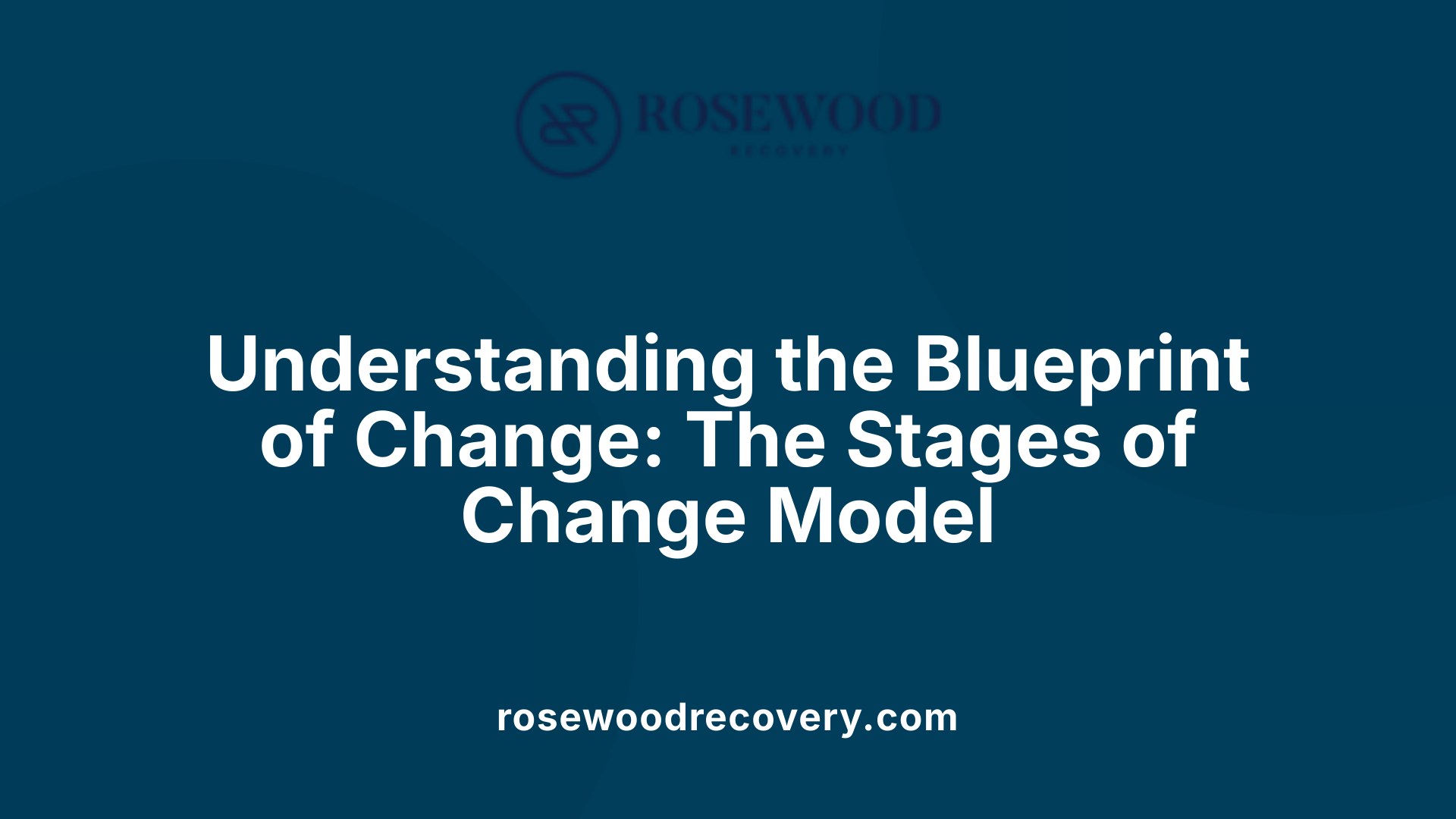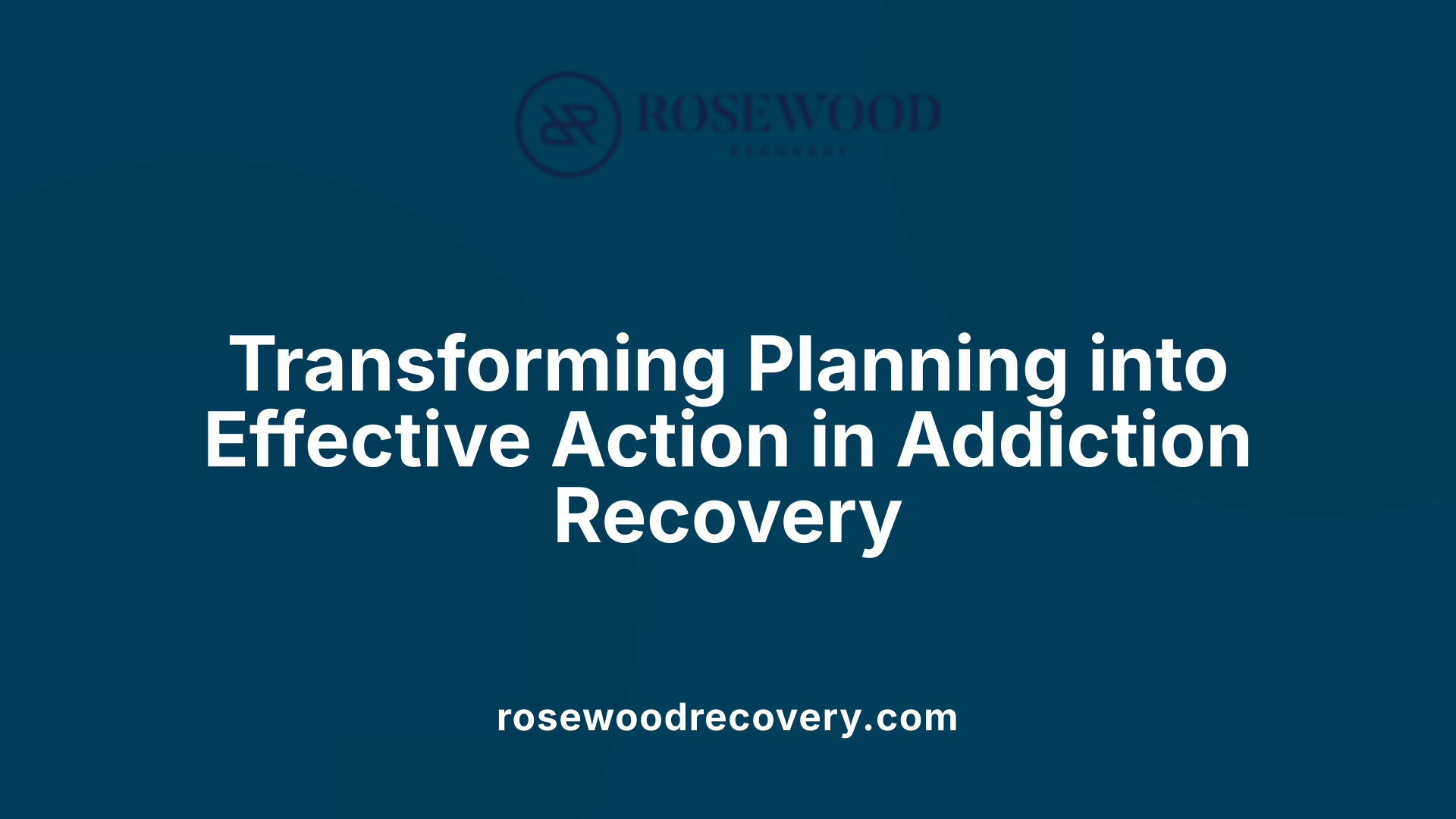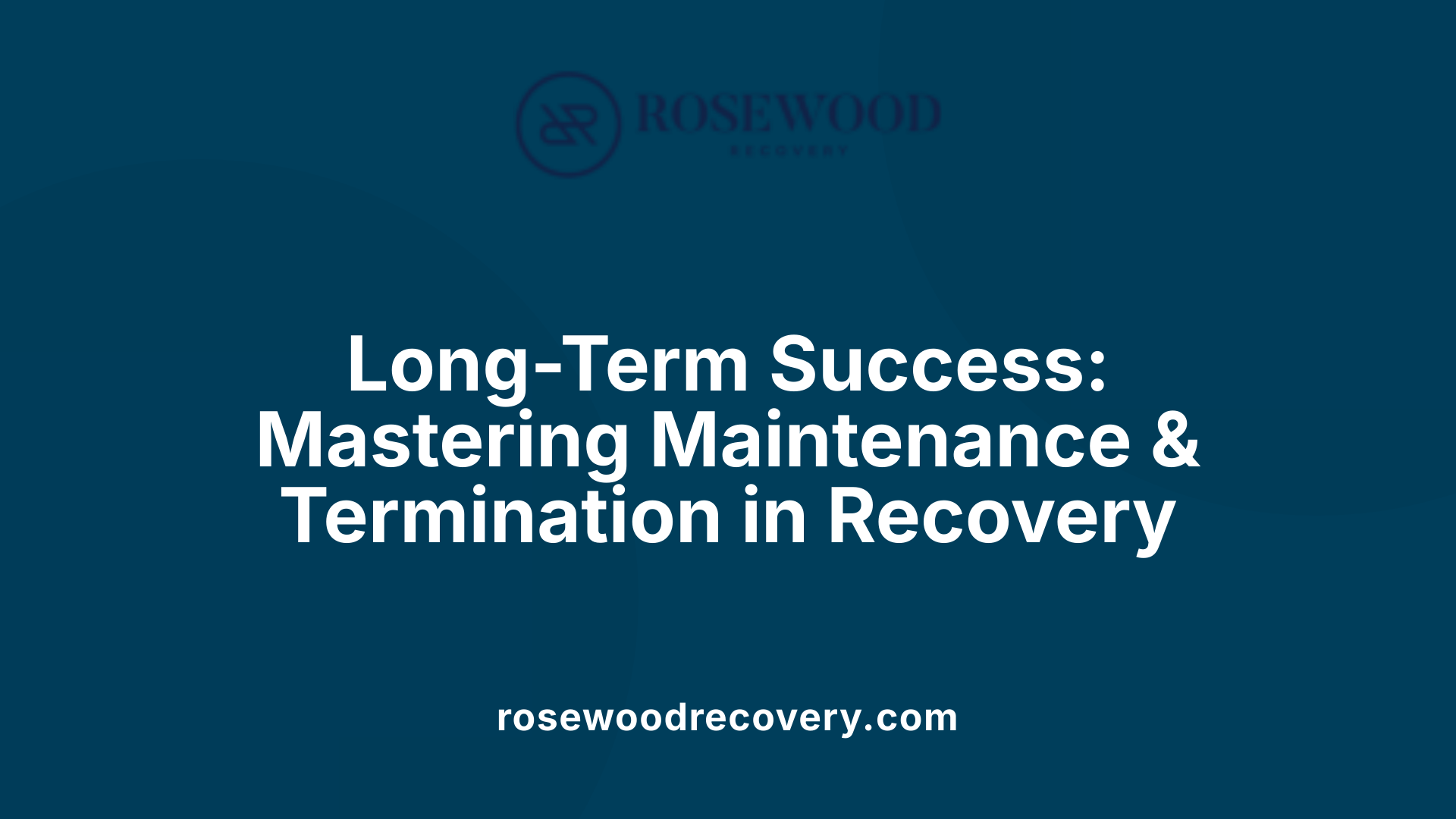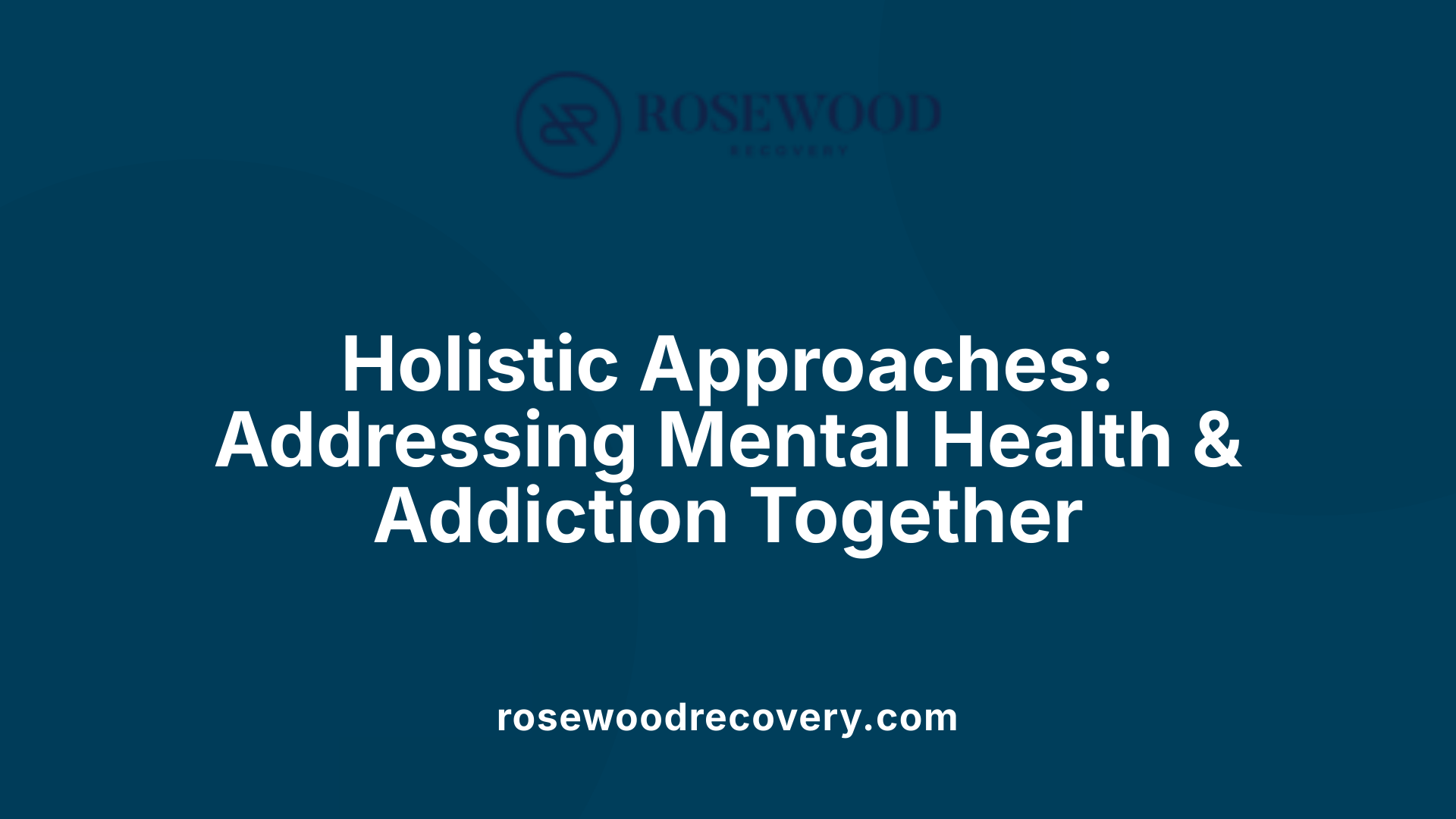A Pathway Through Recovery
Understanding addiction recovery requires insight into the psychological processes individuals experience on their journey toward sobriety. The widely recognized 'Stages of Change' or transtheoretical model provides a framework that captures these phases, illuminating how people move from denial to sustained recovery. This article explores these stages in depth, highlights how treatment services adapt to each phase, and underscores the importance of comprehensive care addressing substance abuse and mental health.
The Foundations of the Stages of Change Model

Origins of the model
The Stages of Change model, also known as the Transtheoretical Model (TTM), was developed in the 1970s by psychologists James O. Prochaska and Carlo C. DiClemente. It emerged from research on "natural recovery," the process through which individuals overcome substance use and other addictive behaviors without formal treatment. This research highlighted that behavioral change is a process, not a single event, which led to the creation of a structured framework describing how change unfolds over time.
Purpose and application in addiction recovery
The model is widely used within substance abuse and mental health treatment to guide interventions and support recovery. Its motivational and person-centered approach respects that individuals vary in readiness and willingness to change. Clinicians use the model to tailor treatment strategies based on where someone is in their recovery journey, improving engagement and outcomes. It also helps individuals understand their own progress, making the change process more approachable and manageable.
Overview of the stages
The model outlines six main stages individuals typically move through when recovering from addiction:
Precontemplation: Individuals are not yet aware that their behavior is problematic or are in denial. They often do not intend to change and may resist intervention.
Contemplation: Awareness of the problem develops, and individuals begin to consider the pros and cons of change but feel ambivalent. They are open to learning more but have not committed to action.
Preparation: Commitment to change forms, and individuals start planning steps to modify their behavior. This can include gathering information, removing triggers, and seeking support.
Action: Active efforts are made to change behavior. This phase often involves professional support and implementation of coping strategies to maintain abstinence or altered behavior.
Maintenance: Sustaining the new behavior over the long term is the focus here. Preventing relapse through ongoing support, coping skills practice, and lifestyle adjustments becomes key.
Termination: In some models, this stage represents a point where the individual no longer feels tempted to relapse, having developed strong coping mechanisms and permanent changes. However, some experts view this stage as less distinct, recognizing that vigilance is often lifelong.
By mapping the recovery pathway, the Stages of Change model serves as a valuable tool in understanding addiction recovery as a dynamic and individualized journey.
Navigating the Early Stages: Precontemplation and Contemplation
Characteristics of Precontemplation and Contemplation Stages
In the Precontemplation stage, individuals do not yet recognize their behavior as problematic. This lack of awareness often stems from denial or the absence of immediate negative consequences. People here might resist any suggestion of change and may rationalize their habits, showing little or no intention to modify behavior.
Conversely, the Contemplation stage marks a shift where individuals begin to acknowledge that their behavior could be harmful. However, they feel ambivalent about changing, weighing the pros and cons without committing to action. This stage can last several months as they deliberate the impact and possibilities of change.
Psychological Barriers: Denial and Ambivalence
Denial is a major barrier in the Precontemplation stage, where individuals avoid recognizing the reality of their addiction. Ambivalence dominates the Contemplation phase, where conflicting feelings prevent firm decisions. These psychological hurdles challenge progress but are natural steps in the recovery journey.
Role of Awareness and Motivation
Moving forward depends heavily on increasing awareness about the consequences of addiction. As individuals weigh benefits against drawbacks in contemplation, their motivation to change can strengthen. Greater insight and readiness prepare them to plan for action.
Intervention Strategies: Motivational Interviewing and Harm Reduction
In these early stages, strategies such as motivational interviewing prove effective by gently resolving ambivalence and facilitating self-motivated change. Interventions also include harm reduction, which aims to minimize negative outcomes without requiring immediate abstinence. These person-centered approaches respect the individual's pace and perspective, fostering engagement and trust.
By understanding and addressing the unique challenges of the Precontemplation and Contemplation stages, treatment providers and support networks can better guide individuals toward meaningful recovery.
From Planning to Action: Preparation and Action Stages in Recovery

Planning specific steps for change
The Preparation stage is characterized by individuals making deliberate plans to change their addictive behaviors. This often involves setting a clear timeline, typically intending to take action within 30 days. During this phase, individuals gather information about available treatment options and identify strategies tailored to their personal circumstances.
Gathering resources and removing triggers
Critical to Preparation is the removal of triggers that may prompt relapse. This can include avoiding environments or people associated with substance use and securing necessary resources such as counseling support, medications, or support groups. Preparing the environment enhances the chances of successfully implementing change.
Implementation of lifestyle changes
The Action stage marks the period when individuals actively modify their behavior. This could include abstaining from substance use, developing new coping strategies, and adopting healthier habits. This stage is best supported by structured plans developed during Preparation.
Clinical and non-clinical supports during Action stage including behavioral therapies and medication-assisted treatment
Support during the Action phase often combines clinical interventions like medication-assisted treatment and behavioral therapies with non-clinical approaches such as peer support or motivational interviewing. Therapies focus on skill-building, managing cravings, and addressing underlying psychological issues.
Relapse prevention considerations
Relapse prevention strategies are integral throughout the Action stage. Individuals learn to identify high-risk situations, develop coping skills, and implement positive reinforcements to sustain progress. Recognizing relapse as part of the recovery journey encourages perseverance and helps tailor ongoing support.
| Stage | Focus | Typical Activities |
|---|---|---|
| Preparation | Planning and readiness | Gathering resources, removing triggers, selecting treatment plans |
| Action | Implementing change | Behavior modification, therapy engagement, medication adherence |
| Maintenance | Sustaining recovery (beyond Action) | Relapse prevention, ongoing support, lifestyle adjustments |
Sustaining Change: The Maintenance and Termination Stages

Challenges of Sustaining Recovery Long-Term
Sustaining recovery after active behavior change is often demanding. During the maintenance stage, individuals face challenges like complacency, stress, and exposure to triggers that can test their resolve. This stage typically spans over six months or more and requires ongoing commitment to new healthy behaviors to prevent relapse.
Relapse as Part of the Recovery Process and Managing Setbacks
Relapse is recognized as a common part of the recovery journey rather than a failure. Individuals may experience lapses or full re-engagement with addictive behavior. The Stages of Change model encourages understanding relapse as an opportunity to learn and strengthen coping skills. Strategies such as identifying triggers, developing coping mechanisms, and receiving positive reinforcement play crucial roles in managing setbacks.
Characteristics of the Termination Stage and Ongoing Coping Mechanisms
The termination stage is often described as the point where individuals no longer feel tempted to revert to previous behaviors. While some debate its permanence, it represents sustained recovery with weakened neural pathways associated with addiction habits. Continuous development of coping strategies remains essential to maintain sobriety, ensuring readiness against any future risks of relapse.
Importance of Aftercare and Ongoing Support
Recovery is lifelong, and aftercare services provide vital support beyond initial treatment. Clinical and non-clinical interventions, including psychosocial strategies and medications, help maintain progress. Regular support reassures individuals, addresses new challenges, and fosters self-efficacy. Tailored aftercare emerges as a personalized approach to sustain long-term remission and encourage ongoing growth.
Comprehensive Treatment Services: Addressing the Complexity of Addiction and Mental Health

What are comprehensive treatment services for substance abuse?
Comprehensive treatment services for substance abuse are designed to address the multi-dimensional nature of addiction. They encompass a combination of coordinated interventions that target physical health, psychological well-being, and social stability.
Core components of comprehensive treatment
- Medical Detoxification: Helps individuals safely manage withdrawal symptoms under professional supervision.
- Behavioral Therapies and Counseling: Tailored to modify harmful behaviors and develop coping strategies. These therapies support motivation and behavioral change through person-centered approaches.
- Medication-Assisted Treatment (MAT): Utilizes medications such as methadone or buprenorphine to ease cravings and promote abstinence, particularly in opioid use disorders.
Integration of mental health services
Addiction treatment frequently overlaps with mental health care, addressing co-occurring disorders concurrently. This integration is vital since many individuals with substance use disorders also struggle with depression, anxiety, or other mental illnesses. Coordinated care ensures both conditions are treated effectively, reducing relapse risk.
Range of interventions
Comprehensive services include:
- Medical detox and stabilization
- Individual and group counseling
- Psychosocial strategies like motivational interviewing and relapse prevention
- Medication management
- Family therapy to support social networks
Community resources and aftercare
Aftercare plays a crucial role in sustaining recovery. Supportive housing, peer support groups, vocational training, and ongoing counseling help maintain progress. Community prevention programs and access to treatment through updated facility databases enhance long-term recovery outcomes.
Personalized treatment plans
Each individual is unique; therefore, treatment plans are customized based on the recovery stage, severity of addiction, mental health status, and personal circumstances. The Stages of Change model guides providers to match interventions to the client’s readiness and needs, improving engagement and effectiveness.
Comprehensive addiction treatment is a lifelong, evolving process emphasizing coordinated care, ongoing support, and individualized strategies to overcome substance use and associated challenges.
Treating Mental Health in Tandem with Addiction Recovery

How do comprehensive treatment services address mental health issues?
Comprehensive treatment services play a crucial role by addressing mental health alongside addiction recovery through personalized, evidence-based care. Each individual undergoes thorough assessment and diagnosis to tailor therapy options that accommodate their unique mental health conditions such as depression, anxiety, or co-occurring disorders like autism.
Therapeutic approaches are diverse, ranging from traditional counseling and cognitive-behavioral therapy to specialized treatments including Transcranial Magnetic Stimulation (TMS), Electroconvulsive Therapy (ECT), and ketamine-assisted psychotherapy. These innovative methods offer valuable alternatives when conventional therapies prove insufficient, expanding the spectrum of effective mental health care.
Urgent crisis intervention is another pillar supporting recovery. Programs such as the 988 Lifeline and Mobile Crisis Outreach ensure immediate, accessible emergency support for individuals experiencing acute mental health or addiction crises. Youth-focused crisis services provide age-appropriate intervention to younger populations in distress, acknowledging developmental needs.
Collaborative care models integrate mental health and addiction treatment, fostering communication between specialists and primary care providers. This integration promotes holistic support, monitors progress across conditions, and empowers patients on their journey toward sustained recovery and improved well-being. Such an approach reflects the understanding that mental health and addiction are deeply interconnected and must be treated in tandem for lasting success.
Addressing the Spectrum: Types of Addiction Managed by Comprehensive Services
What types of addiction can be treated with comprehensive services?
Comprehensive addiction treatment services cover a broad spectrum of disorders, including both substance use and behavioral addictions. Substance addictions treated include alcohol, illicit drugs, and prescription medications. Additionally, behavioral addictions such as gambling, internet addiction, and sex addiction are also effectively managed.
What levels of care are typically provided?
Treatment spans multiple levels of care tailored to individual needs. These range from detoxification and inpatient or residential programs for intensive support to less restrictive outpatient programs like Intensive Outpatient Programs (IOP) and Partial Hospitalization Programs (PHP). This graduated approach allows adjustment of care intensity based on recovery progress.
How do counseling and medical treatments contribute?
Counseling—such as cognitive behavioral therapy and motivational interviewing—addresses psychological aspects and supports craving management. Medical treatments may include medication-assisted therapy to ease withdrawal and reduce relapse risk. Family involvement and peer support groups complement professional care by providing emotional backing and fostering long-term recovery.
What is the focus of these treatments?
The core focuses are achieving and maintaining abstinence, managing cravings, and preventing relapse. Treatments emphasize sustaining new, healthy behaviors through ongoing support, relapse prevention strategies, and aftercare planning.
How are treatments tailored to the individual?
Every treatment plan considers the individual's unique addiction history, co-occurring conditions, social environment, and personal preferences. This personalized approach ensures interventions effectively address the complex, multifaceted nature of addiction recovery.
| Aspect | Description | Examples or Notes |
|---|---|---|
| Types of Addiction | Substance and behavioral addictions | Alcohol, opioids, gambling, internet addiction |
| Levels of Care | Detox to outpatient programs | Inpatient, IOP, PHP |
| Therapeutic Support | Counseling, medical treatment, family, peer | CBT, motivational interviewing, medications |
| Treatment Focus | Craving management, abstinence, relapse prevention | Relapse viewed as part of recovery process |
| Individual Tailoring | Personalized based on history and needs | Addresses co-occurring disorders, social factors |
Embracing a Lifelong Journey of Recovery
The Stages of Change model offers an invaluable roadmap for understanding and supporting recovery from addiction. By recognizing the unique challenges and needs at each stage—from early denial to sustained maintenance and eventual termination—treatment providers can tailor interventions that empower individuals to progress and persevere. Comprehensive treatment services play a crucial role by addressing both addiction and co-occurring mental health issues through an integrated, personalized approach. Recovery is an ongoing, non-linear journey that often includes setbacks, but with appropriate support and commitment, long-term change and improved quality of life are achievable. Embracing this framework not only helps individuals but also enriches the broader effort to transform addiction care into a more responsive and compassionate system.
References
- The Stages of Change Model of Overcoming Addiction
- Brief Interventions and Brief Therapies for Substance Abuse
- How To Apply the Stages of Change Model to Addiction ...
- Stages of Change Theory - StatPearls
- Stages of Recovery
- Motivational Interviewing: 6 Stages of Change
- The Stages of Change Model of Overcoming Addiction

.jpeg)
.jpeg)

